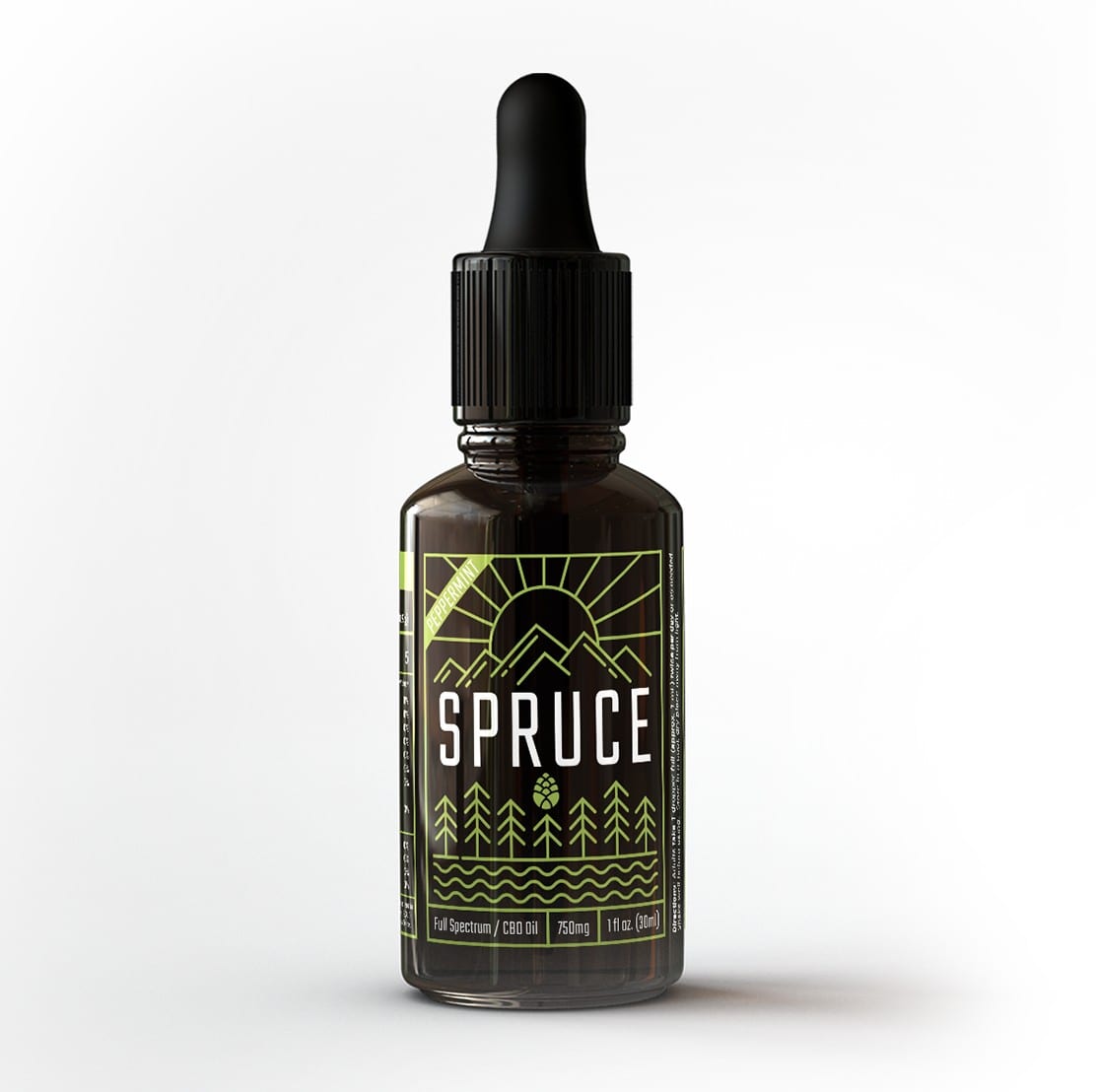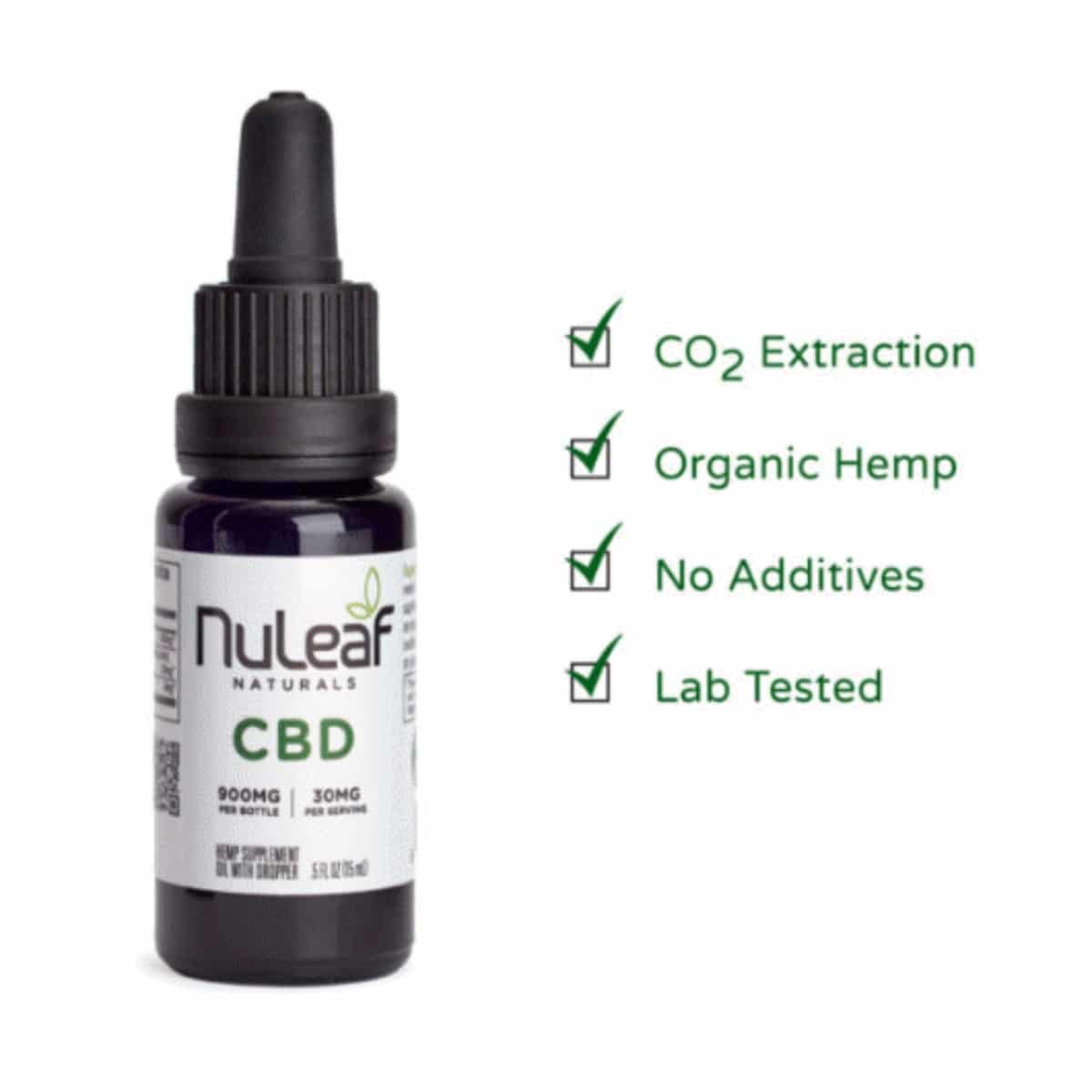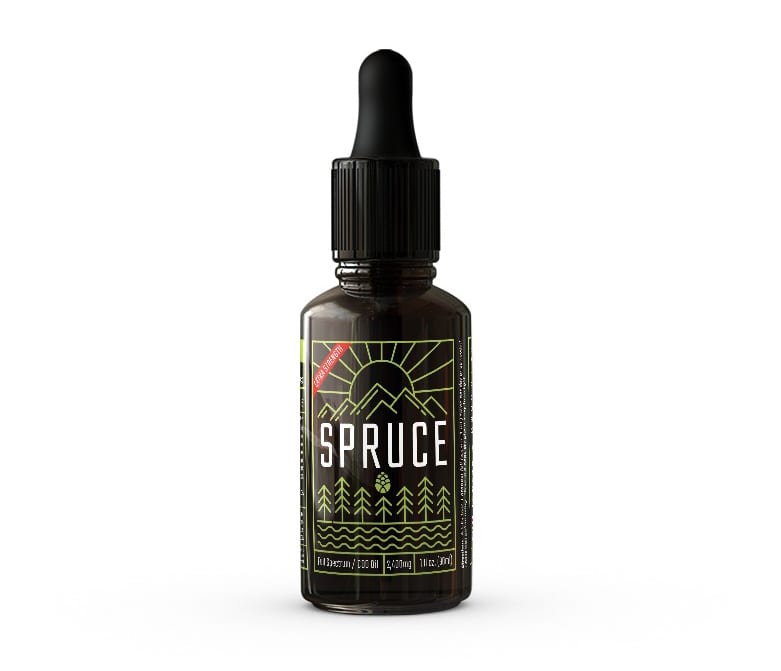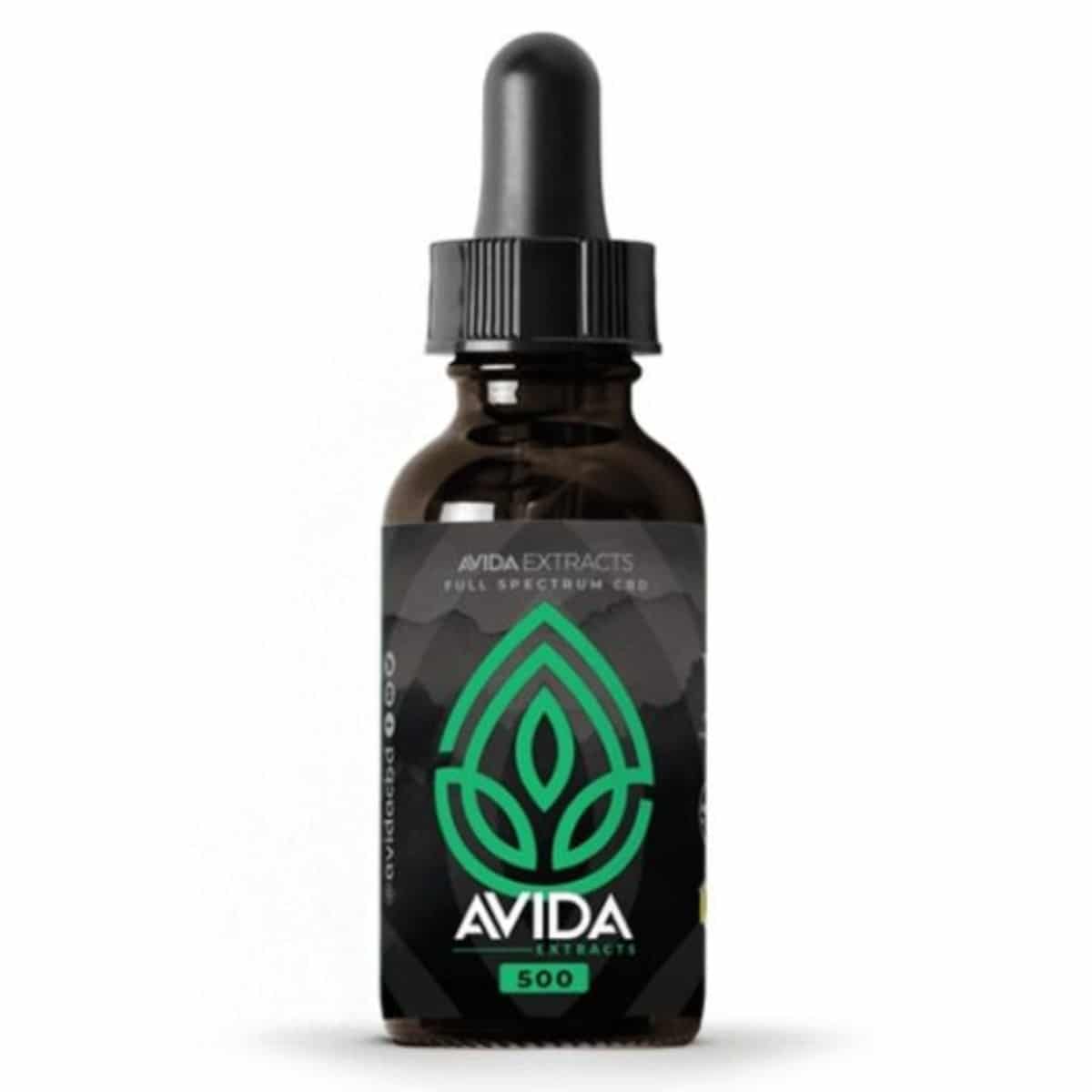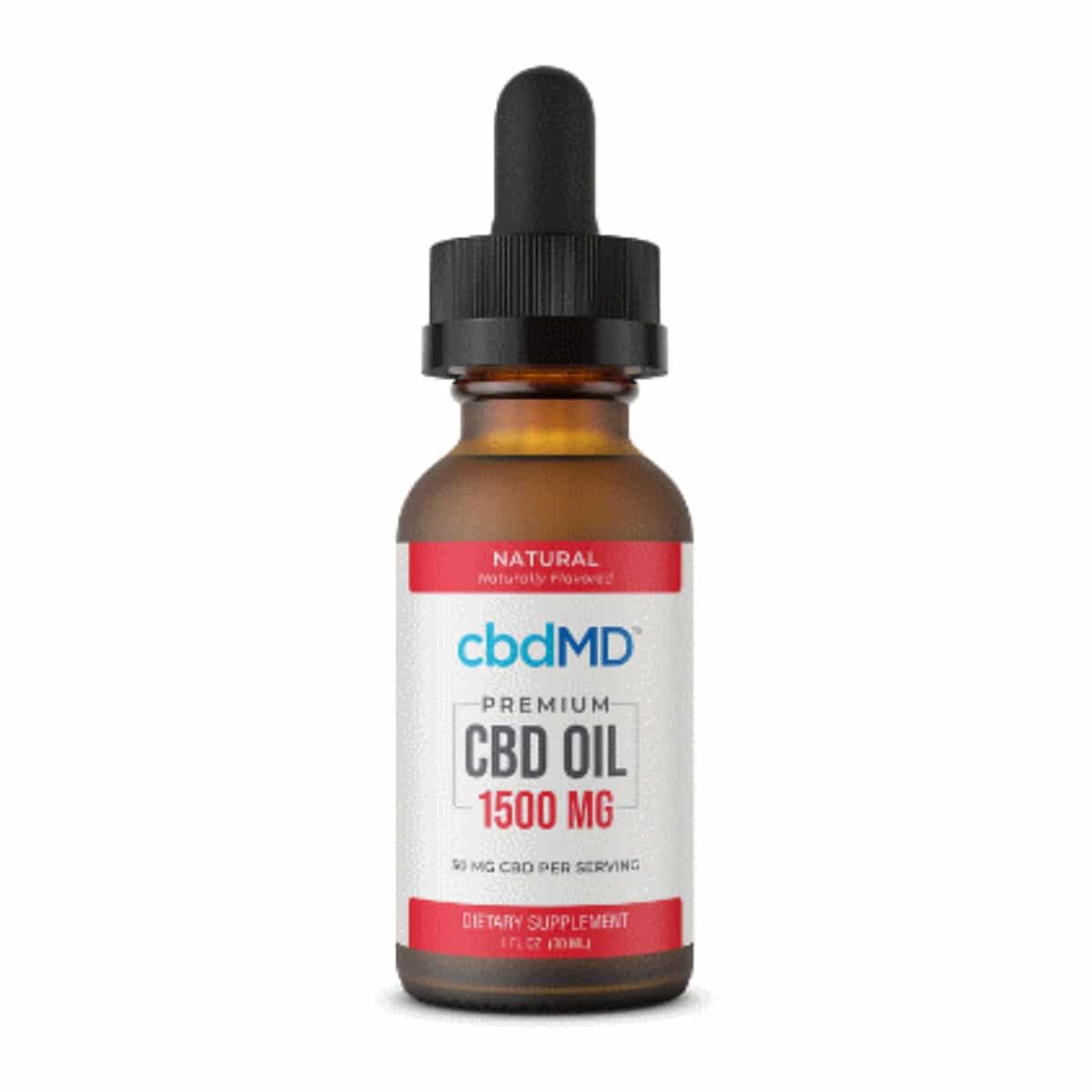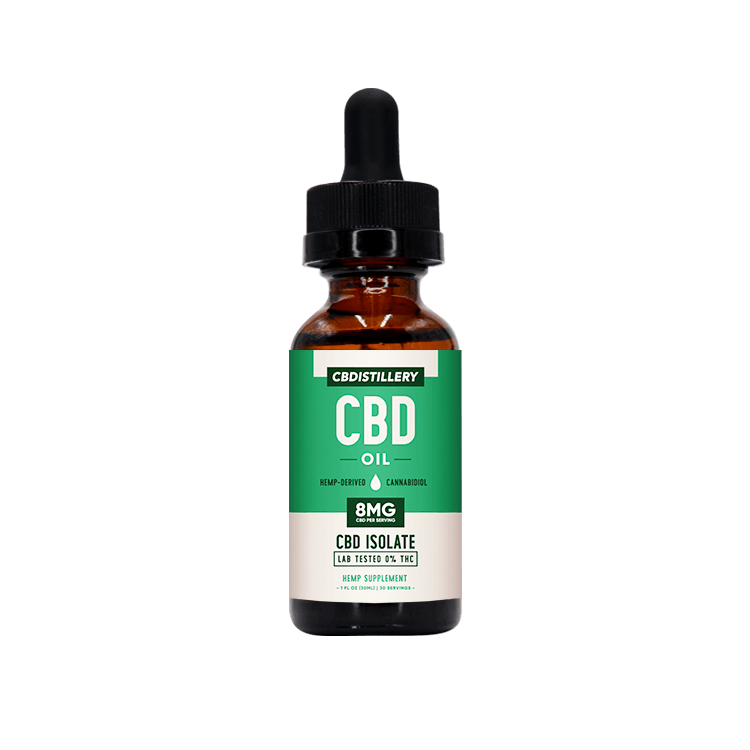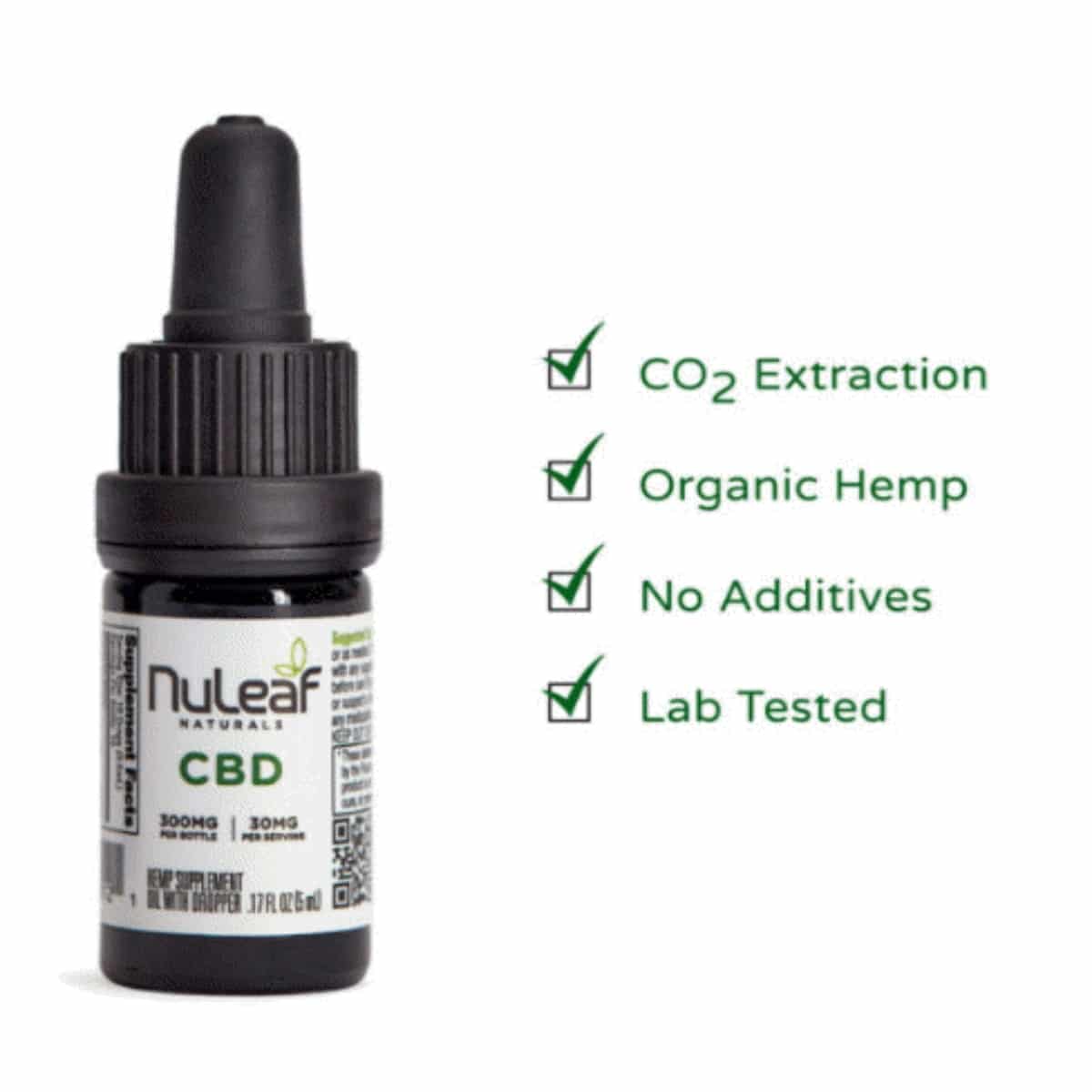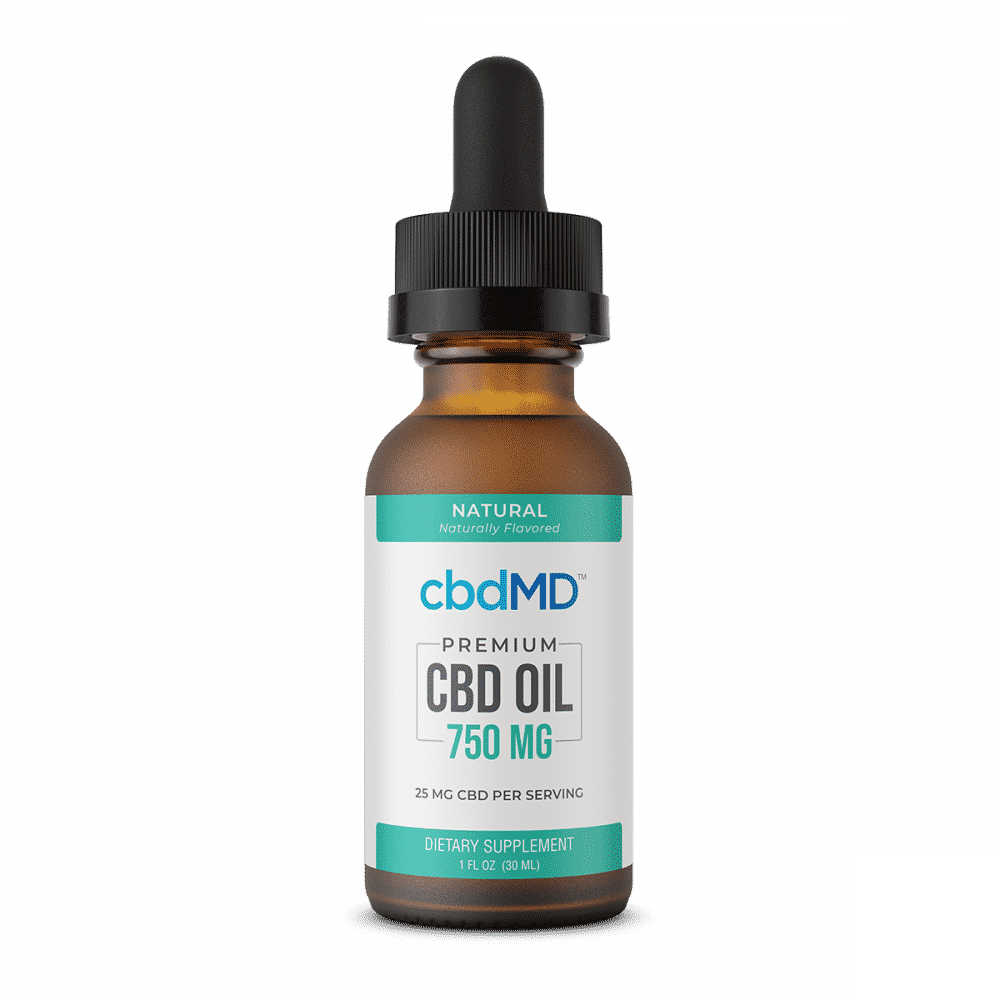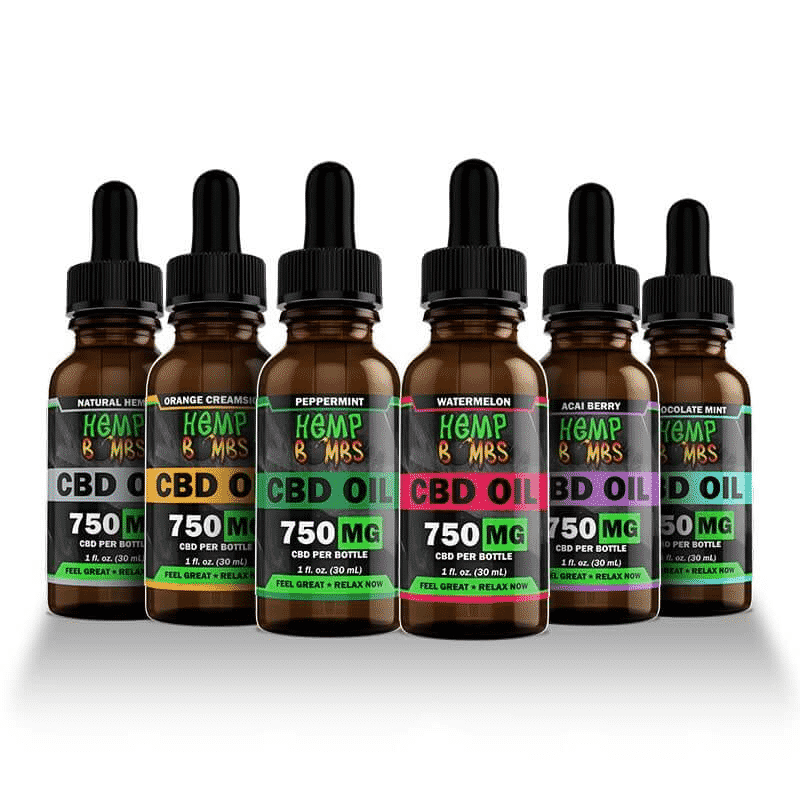Best CBD Oil for Seizures
We have gathered the best cannabidiol (CBD) oils you can try to reduce seizures. Find out how you can choose the right CBD product for your condition.
Best CBD Oil For Seizures 2025
- Spruce 750mg Lab Grade CBD Oil Editor's Pick
- NuLeaf Naturals 900mg Full Spectrum Hemp CBD Oil Best Organic
- Spruce 2400mg Lab Grade CBD Oil Editor's Pick
- Avida Full Spectrum CBD Oil Tincture 500mg Best Seller
- cbdMD CBD Oil Tincture Natural 1500mg Best Natural Alternative
- CBDistillery THC Free CBD Oil Tinctures Best THC-Free
- cbdMD CBD Oil Tincture Natural 750mg Best Customer Rated
- NuLeaf Naturals 300mg Full Spectrum Hemp CBD Oil Best Starter
- Hemp Bombs 750mg CBD Oil Best Flavor Range
Compare the Best CBD Oil for Seizures in 2021
Best CBD Oil for Seizures
1. Spruce 750mg Lab Grade CBD Oil
cbdc overall score
4.8
CBDC Evaluation Table/Score
| Pros | Cons |
|---|---|
|
Mid-strength |
No other flavors |
|
Natural peppermint flavor |
|
|
Made from 100% organic and natural ingredients |
Overview
Each bottle of the 750mg CBD oil tincture contains 25mg of CBD per dropper full. The oil is peppermint flavor to mask any unpleasant tastes related to CBD.
2. NuLeaf Naturals 900mg Full Spectrum Hemp CBD Oil
cbdc overall score
5.0
CBDC Evaluation Table/Score
| Pros | Cons |
|---|---|
|
Pure CBD hemp |
No other flavors |
|
All natural |
|
|
Approximately 300 drops total |
Overview
Natural remedy for various illnesses. NuLeaf Naturals’ CBD oil is a whole-plant extract containing a full spectrum of naturally occurring synergistic cannabinoids and terpenes.
3. Spruce 2400mg Lab Grade CBD Oil
cbdc overall score
5.0
CBDC Evaluation Table/Score
| Pros | Cons |
|---|---|
|
Extra Strength |
Tastes bitter |
|
No artificial flavoring or colors |
No THC-free option |
|
Made from 100% organic and natural ingredients |
Overview
The largest bottle of CBD oil that Spruce offers contains 2,400mg of CBD. This is full-spectrum CBD oil, which is the maximum possible potency. Each high potency dropper full contains 80mg of CBD. There are no flavorings in it, which allows for the most CBD to fit in the 30ml bottle.
4. Avida Full Spectrum CBD Oil Tincture 500mg
cbdc overall score
4.6
CBDC Evaluation Table/Score
| Pros | Cons |
|---|---|
|
Light Spearmint flavor |
No other flavor |
|
Non-THC, Non-detected in drug test |
Overview
Avida Extracts Full Spectrum CBD oil is the latest iteration of the brand’s advanced Avida CORE Spectrum technology. They use a proprietary full spectrum blend, resulting in the highest naturally occurring Phyto-cannabinoids and Terpenes with THC (<0.3) to support your health.
5. cbdMD CBD Oil Tincture Natural 1500mg
cbdc overall score
4.7
CBDC Evaluation Table/Score
| Pros | Cons |
|---|---|
|
Various delicious flavors to choose from |
cbdMD uses MCT as its carrier oil so individuals who are allergic with coconuts should consider other brand options |
|
Has vegan, organic, and gluten-free ingredients |
|
|
Free shipping for this particular product within USA |
|
|
World-class customer service team |
Overview
cbdMD’s CBD oil tinctures are made using only CBD sourced from medical hemp and MCT oil as a carrier oil. Tinctures are offered in orange, mint, natural, and berry flavors. Safe for daily use, the oil tinctures are packaged with a built-in rubber dropper to adjust CBD dosage easily. The packaging is made to be easy to transport and discreet to use.
6. CBDistillery THC Free CBD Oil Tinctures
cbdc overall score
4.4
CBDC Evaluation Table/Score
| Pros | Cons |
|---|---|
|
60-Day Satisfaction Guarantee |
Dropper is a bit shaky |
|
Various strengths |
|
|
Oil extracted from aerial plant parts of US grown industrial hemp |
|
|
Sourced from non-GMO industrial hemp grown in the USA through natural farming practices |
Overview
CBDistillery’s Isolate CBD Oil Tinctures harness the power of pure CBD. CBD Isolate Oil Tinctures include 0.0% THC. When you use CBDistillery CBD Isolate Oil Tinctures, you can be assured you’re using the highest quality CBD on the market.
7. NuLeaf Naturals 300mg Full Spectrum Hemp CBD Oil
cbdc overall score
4.6
CBDC Evaluation Table/Score
| Pros | Cons |
|---|---|
|
Pure CBD hemp |
No other flavors |
|
All natural |
A bit pricey compared to competitors |
|
Approximately 100 drops total |
Overview
This is one of several concentrations from NuLeaf Naturals. As the lowest concentration, it is the company’s best option for those new to CBD oil. The product is lab-tested and fully organic. It is full-spectrum, so it contains THC in small quantities.
8. cbdMD CBD Oil Tincture Natural 750mg
cbdc overall score
4.4
CBDC Evaluation Table/Score
| Pros | Cons |
|---|---|
|
Vegan and Gluten free |
Does not ship internationally |
|
Has a third-party lab test |
|
|
Wide variety of CBD strengths and sizes |
Overview
A 750mg bottle of cbdMD’s Broad Spectrum Oil Tincture does not contain THC. It also has a fairly wide flavor range which is perfect for those who prefer other taste. Vegan consumers are considered since cbdMD offers Vegan products. Aside from all of that, another reason why people love cbdMD is because it’s free from harmful chemicals.
9. Hemp Bombs 750mg CBD Oil
cbdc overall score
3.9
CBDC Evaluation Table/Score
| Pros | Cons |
|---|---|
|
Wide variety of flavors |
Incomplete information about the product |
|
Lab test results are complete |
Does not ship to all international countries |
|
30-day money-back guarantee |
Overview
Hemp Bombs offer CBD Oil Tinctures that come in a 30ml bottle containing 750mg of CBD. They provide a wide range of flavors perfect for those that have a knack for sweets. Consumers can safely intake this because it’s free of chemicals and pesticides. Hemp Bombs also offer a 20% off on products upon subscription.
How CBD Helps With Seizures
CBD has been gaining interest as a potential treatment for the medical condition.
In a 2014 study published in Epilepsy and Behavior, CBD reduced the frequency of seizures among patients dealing with treatment-resistant epilepsy(1).
Treatment-resistant epilepsy is associated with a low quality of life (QOL)(2). It was suggested that CBD may improve patients’ QOL through effective seizure control(3).
Seizures are bursts of uncontrolled electrical activity between neurons (brain cells) that cause temporary abnormalities in movements, behaviors, consciousness, or sensations. Meanwhile, epilepsy occurs when an individual has recurring seizures(4).
The two types of seizures are focal and generalized seizures. Focal or partial seizures start with an electrical discharge in one area of the brain, while generalized seizures can spread to both sides of the brain(5).
The therapeutic effects of CBD on seizures are realized by CBD’s interaction with the body’s endocannabinoid system (ECS) and its cannabinoid receptors.
The ECS regulates various functions in the body, including immune response, pain sensation, mood, memory processing, metabolism, appetite, anxiety, and sleep.
CB1 and CB2 are the two main types of receptors of the ECS. Each receptor has specific roles and is located in different parts of the body.
CB1 receptors are prevalently expressed in the central nervous system, including the brain. These receptors are also found in the liver, lungs, retina, gastrointestinal and urinary tracts, and reproductive organs(6).
CB1 receptors’ activation in the body has been linked to neuroprotective responses(7).
This mechanism suggests that cannabinoids with a high affinity for CB1 receptors, like CBD, may help prevent and treat neurodegenerative conditions(8).
Cannabinoids are naturally occurring compounds that may come from the cannabis plant.
Meanwhile, CB2 receptors are mainly situated on the immune system’s cells and their associated structures. When activated, these receptors stimulate a response that reduces pain, fights inflammation, and minimizes tissue damage.
According to a study, CBD compounds have a weak affinity for CB1 and CB2 receptors. CBD’s anti-seizure activity at certain concentrations is brought about by other mechanisms(9).
The blocking of GPR55 receptors and the reabsorption of adenosine in the brain have been suggested to play a vital role in CBD’s anti-seizure activity(10).
Adenosine is a neurotransmitter that may stop seizures and convulsions(11). A 2017 study in the Neuropharmacology journal noted that the therapeutic increase of adenosine prevents epileptic seizures(12).
GPR55 (G protein-coupled receptor) is a type of protein found in the brain. A study found that the function of GPR55 receptors was enhanced by epilepsy that made seizures worse(13).
However, CBD remained adequately potent in epileptic brains, which suggests the anticonvulsant properties of CBD. These anticonvulsant characteristics may be related in part to CBD-mediated modulation of the ECS(14).
The modulation is done through inhibiting anandamide degradation or decline, resulting in reduced excess brain activity(15).
Anandamide is an endocannabinoid (cannabinoids produced within the body) that acts as a neurotransmitter and regulates emotional behavior.
Research noted that endocannabinoids are released by bursts of action potentials, such as seizures or events resembling spikes(16).
Benefits of Using CBD for Seizures
Studies indicated CBD’s antiepileptic efficacy in acute and chronic seizure rodent models. However, the exact mechanisms of action remain unclear(17).
In various animal studies, pure CBD used on partial and generalized epilepsy models showed anticonvulsant effects(18). These studies were conducted on mice, rats, and gerbils.
Meanwhile, open-label studies and small randomized controlled trials of purified CBD in humans with treatment-resistant epilepsy demonstrated mixed results(19).
A study in the New England Journal of Medicine indicated that CBD use resulted in a significant reduction in convulsive-seizure frequency than placebo among people with Dravet syndrome(20).
Dravet syndrome is one of the types of epilepsy syndromes that begins in infancy or early childhood. This condition is characterized by frequent or prolonged seizures(21).
Many of these clinical trials used a product that combines a one-to-one ratio of CBD and tetrahydrocannabinol (THC), a compound with known psychoactive effects.
The results of the 2017 study were promising. On average, CBD decreased convulsive seizures from nearly 13 seizures to about six seizures per month(22).
Meanwhile, the average change with the placebo was from 15 to about 14 seizures per month. A minority of about 5% of patients became seizure-free.
In another randomized, double-blind, placebo-controlled trial in 2018, researchers investigated CBD’s efficacy on the treatment-resistant Lennox-Gastaut syndrome (LGS).
Findings stated that CBD proved efficacious in treating patients (aged 2 to 55 years old) with drop seizures associated with LGS(23).
Drop seizures, also known as atonic seizures or drop attacks, are characterized by a sudden loss of muscle strength. This type of seizure causes an individual to fall to the ground(24).
In a 2018 study, the high-dose CBD group experienced an average reduction in the drop-seizure frequency of nearly 42% during the treatment period.
Meanwhile, the low-dose CBD group experienced about 37% reduction while only 17% in the placebo group reported drop seizure reduction.
The researchers also suggested that CBD is generally well-tolerated. However, 74 out of 86 patients reported adverse effects, such as drowsiness, fever, decreased appetite, diarrhea, and vomiting.
The studies on CBD as an additional anticonvulsant in patients with LGS and Dravet syndrome contributed to the decision regarding Epidiolex’s approval.
Epidiolex is a pharmaceutical-grade purified CBD approved by the US Food and Drug Administration (FDA) as an evidence-based remedy for treatment-resistant epileptic syndromes(25).
Medical professionals’ attitudes regarding the use of CBD for epilepsy treatment appear to be divided(26). However, data about CBD’s benefits in the daily is not available.
CBD Dosage and Delivery Methods for Seizures
Dosage
CBD dosage for seizures may depend on several factors, such as the patient’s age, seizure type, cause of seizure or epilepsy, and other medications currently taken(27).
You may start with small amounts of CBD at first, then gradually increase the dosing if there are no adverse effects. Get medical advice from your physician to determine the right CBD dosage for seizures.
A study stated that doses of up to 50 mg CBD are safe. However, a higher permissible amount for CBD treatment cannot be defined due to a lack of data(28).
Meanwhile, the recommended Epidiolex dosages for seizures associated with Dravet or Lennox-Gastaut syndrome are the following(29):
- Starting dosage: 2.5mg CBD per kilogram of the body weight by mouth twice daily
- Maintenance dosage: 5mg CBD per kilogram of the body weight by mouth twice daily
- Maximum maintenance dosage: 10mg CBD per kilogram of the body weight by mouth twice daily
Methods of Delivery
Oral administration is recommended for people with seizures, especially those with Dravet and Lennox-Gastaut syndrome. Epidiolex is an oral solution that involves placing the liquid in the mouth(30).
Tinctures may be applied through sublingual administration by placing a few drops of CBD oil under your tongue with a dropper. This method allows CBD to be absorbed into the bloodstream.
According to a review published in the International Journal of Pharmacy and Pharmaceutical Sciences, most substances administered sublingually achieve peak blood levels (the drug’s highest level of concentration in the bloodstream) within 10 to 15 minutes, which is faster than oral ingestion(31).
Additionally, the sublingual method is an efficient way to take CBD oil. Studies report that the sublingual form has a bioavailability of 13% to 19% and 35%(32).
Bioavailability is known as the rate and degree at which the body absorbs a drug.
CBD oil may be ingested through edibles, gummies, or added to other food and beverages. This method allows CBD to be absorbed through the digestive tract.
CBD-infused topicals may also be used in massage therapies. However, this method provides limited absorption through the skin(33).
The Epilepsy Society in the United Kingdom stated that complementary therapies, like massages and herbal remedies, may reduce stress, promote well–being, and be used with any antiepileptic drugs taken by an individual(34).
Vaping provides a quick way of getting CBD into the body(35). After inhaling CBD, it enters the bloodstream by passing through the lungs.
The effects of CBD may be felt within minutes and may last up to four hours(36). However, it may be challenging to determine the exact amount of CBD in each draw of vape.
The use of vape should be done with caution, especially for patients with seizures. Experts believe that vaping may cause lung problems due to allergic or immune reactions and chemical irritation to various substances in the inhaled vapors(37).
CBD vs. Other Treatment Options for Seizures
Prescribed medications and surgical techniques may control seizures in 70% of individuals with epilepsy–seizure disorders. However, there is no available treatment of seizures in some forms of epilepsy(38).
These self-management strategies may help epilepsy patients control their seizures better and improve their overall health(39):
- Getting seven to eight hours of sleep.
- Keeping a well-balanced diet and maintaining a healthy weight.
- Finding outlets to relieve stress and seeking professional help for mental health issues.
Multiple studies highlighted CBD’s potential therapeutic properties that may help with these self-management techniques for seizures.
A 2017 study noted that CBD may induce restful sleep and hold promise in the treatment of insomnia(40).
Full-spectrum CBD derived from hemp contains omega-3 fatty acids. A study observed that administering supplements with omega-3 and omega-6 fatty acids resulted in reduced seizures in patients with refractory epilepsy(41).
Another study indicated that CBD had anti-anxiety and antiepileptic effects on the brain that may help with anxiety and depression(42).
Risks and Side Effects of CBD for Seizures
The World Health Organization (WHO) indicated that CBD is generally safe to use(43). However, the possible side effects of CBD may include nausea, dry mouth, fatigue, diarrhea, changes in weight or appetite, and gastrointestinal problems(44).
The FDA-approved CBD drug for epilepsy, Epidiolex, may also come with mild or severe side effects. Some of the adverse reactions to Epidiolex include malaise (feeling of weakness), skin rash, insomnia, and viral or fungal infections(45).
In clinical studies, liver damage occurred in people who took Epidiolex. It was noted that between 8% and 25% of people had high levels of liver enzymes(46).
Studies also showed that CBD may interact with certain seizure medications, including clobazam (Sympazan and Onfi), diazepam (Diastat and Valium), valproate or valproic acid, and phenytoin (Dilantin and Phenytek)(47).
Data suggested that CBD may reduce the effects of the said medications and increase some side effects(48).
If you are considering CBD oil for seizures, talk to your doctor to know if CBD can be taken with your prescribed medications.
How to Choose the Best CBD Oil for Seizures
Before purchasing CBD oil for seizures, you should know the three types: full-spectrum, broad-spectrum, and CBD isolates.
Full-spectrum CBD contains all nutrients from the Cannabis sativa plant, including trace amounts of THC, terpenes, fatty acids, flavonoids, and essential oils. The combination of these compounds synergizes to create an entourage effect.
This phenomenon occurs when all components work together to achieve more than the sum of what the same components could achieve individually(49). The entourage effect is believed to enhance CBD’s health benefits(50).
For individuals with seizures who do not prefer trace amounts of THC in their system, broad-spectrum CBD may be used. This type of CBD oil is similar to full-spectrum CBD without the THC compound.
If you are allergic to certain compounds of the cannabis plant, you may opt for CBD isolates. This type of CBD oil carries pure, isolated cannabidiol only.
You should also know the differences between hempseed oil and hemp oil. Hempseed oil is obtained from hemp seeds and may have little to no THC content, while hemp oil is extracted from the oil of the hemp plant.
The following factors may help you find high-quality, reliable, and safe CBD products:
- Choose quality products made from non-GMO, organic hemp, and manufactured by legitimate CBD brands.
- Some CBD companies grow their hemp or source it from licensed hemp producers. The most common sources of hemp are Colorado and Oregon.
- Know the method of extraction used in the CBD product. According to a study, the FDA recognizes supercritical CO2 extraction as a safe process in pharmaceutical manufacturing(51).
- The standard carrier oils used in CBD oil include hemp seed oil, MCT (medium-chain triglycerides), and extra-virgin olive oil.
- CBD oil products should be tested by an accredited third-party laboratory. Companies should provide the results on their website to ensure the absence of pesticides, heavy metals, bacteria, and residual solvents.
- See if the third-party lab results match the CBD company’s claims about the potency of its products.
- You may also look for certification codes in CBD products. These codes determine if the product is screened and approved by the authorities.
- Get advice from a healthcare professional regarding the proper dosage and recommended form of CBD to use for your condition.
- Research on the brand and read customer reviews when buying from an online store.
- If you are buying from a dispensary or local retailer, make sure that the store is authorized by the government to sell CBD products.
- Know the laws regarding CBD in the state where you will purchase and use it.
Legality of CBD
Hemp and hemp-derived CBD products with less than 0.3% THC are federally legal under the United States 2018 Farm Bill(52).
Industrial hemp is removed as a Schedule I drug from the Controlled Substances Act. Drugs under this category have no acceptable medical use and have a high potential for abuse(53).
The Farm Bill of 2018 also lifted federal restrictions surrounding CBD to allow the cultivation, manufacture, and sale of CBD products. However, state laws may vary regarding CBD with high THC content(54).
Individuals are required to follow the requirements outlined in a state’s medical marijuana program.
Qualifying patients may purchase and use medical cannabis if they have an official diagnosis and recommendation from their physician(55).
Product Frequently
Asked Questions
-
How can CBD help with seizures?
Research suggested that CBD has anticonvulsant properties that work with the body’s endocannabinoid system. This mechanism helps with CBD’s anti-seizure activity(56).
-
What are the benefits of CBD for seizures?
According to studies, CBD showed efficacy in the treatment of epilepsy with its anti-seizure, antipsychotic, and neuroprotective properties. The study’s researchers also noted that CBD possessed anxiolytic and antidepressant characteristics(57).
-
Is there any evidence that CBD can make seizures worse?
In a study published in Neurology, refractory pediatric epilepsy patients who took artisanal or store-bought CBD reported a 70% increase in seizures and side effects(58).
Unlike pharmaceutical-grade CBD (Epidiolex), artisanal CBD may have varying THC levels and may not have undergone testing. These factors could contribute to the increase in seizure activity(59).
-
Will CBD interact with any current medication I may be taking for seizures?
CBD has the potential to interact with seizure medications, such as clobazam (Sympazan and Onfi), diazepam (Diastat and Valium), phenytoin (Dilantin and Phenytek), and valproate or valproic acid(60).
-
Are there other treatments I should consider alongside CBD to help with seizures?
Aside from taking CBD, you may consider different self-management techniques to help with seizures. These techniques include getting enough hours of sleep, following a well-balanced diet, and reducing your stress levels.
-
Can I fail a drug test if I use CBD for seizures?
CBD products with high amounts of THC may show up in a drug test. It is also important to note that even if your CBD oil contains trace amounts of THC only, the compound may accumulate in your body over time with frequent use(61).
-
What is the CBD dosage for seizures?
The general rule for CBD dosage is to begin with a low dose of CBD and slowly increase the amount. It is advisable to consult a physician to determine a suitable dosage for your needs.
-
Where do I find CBD oil for seizures and epilepsy?
Epidiolex, an FDA-approved CBD drug for rare forms of epilepsy, may be purchased from pharmacies with a doctor’s prescription(62). You may also find CBD oil products for seizures in local dispensaries, retailers, and official online stores.
-
How do I get a prescription for medical cannabis and CBD for my seizures?
There are different requirements regarding the purchase of medical cannabis, depending on the state’s law.
In most states, you need a diagnosis from a licensed physician indicating that you have a qualifying medical condition and a recommendation to use CBD-rich oils(63).
- Porter BE, Jacobson C. Report of a parent survey of cannabidiol-enriched cannabis use in pediatric treatment-resistant epilepsy. Epilepsy Behav. 2013;29(3):574‐577. DOI:10.1016/j.yebeh.2013.08.037.
- Gaston, T. E., Szaflarski, M., Hansen, B., Bebin, E. M., Szaflarski, J. P., & UAB CBD Program (2019). Quality of life in adults enrolled in an open-label study of cannabidiol (CBD) for treatment-resistant epilepsy. Epilepsy & behavior : E&B, 95, 10–17. https://doi.org/10.1016/j.yebeh.2019.03.035
- Silvestro, S., Mammana, S., Cavalli, E., Bramanti, P., & Mazzon, E. (2019). Use of Cannabidiol in the Treatment of Epilepsy: Efficacy and Security in Clinical Trials. Molecules (Basel, Switzerland), 24(8), 1459. https://doi.org/10.3390/molecules24081459
- Johns Hopkins Medicine. Types of Seizures. Retrieved from: https://www.hopkinsmedicine.org/health/conditions-and-diseases/epilepsy/types-of-seizures
- ibid.
- Reggio PH. Endocannabinoid binding to the cannabinoid receptors: what is known and what remains unknown. Curr Med Chem. 2010;17(14):1468–1486. DOI:10.2174/092986710790980005.
- Zou, S., & Kumar, U. (2018). Cannabinoid receptors and the endocannabinoid system: signaling and function in the central nervous system. International journal of molecular sciences, 19(3), 833.
- ibid.
- Blair RE, Deshpande LS, DeLorenzo RJ. Cannabinoids: is there a potential treatment role in epilepsy? Expert Opin Pharmacother. 2015;16:1911–4; Friedman D, Devinsky O. Cannabinoids in the treatment of epilepsy. N Engl J Med. 2015;373:1048–58; Bisogno T, Hanus L, De Petrocellis L, et al. Molecular targets for cannabidiol and its synthetic analogues: effect on vanilloid VR1 receptors and on the cellular uptake and enzymatic hydrolysis of anandamide. Br J Pharmacol. 2001;134:845–52.
- Bialer M, Johannessen SI, Levy RH, Perucca E, Tomson T, White HS. Progress report on new antiepileptic drugs: a summary of the Thirteenth Eilat Conference on New Antiepileptic Drugs and Devices (EILAT XIII) Epilepsia. 2017;58:181–221.
- Dragunow, M. (1991). Adenosine and seizure termination. Ann. Neurol. 29:575. doi: 10.1002/ana.410290524; During, M. J., and Spencer, D. D. (1992). Adenosine: a potential mediator of seizure arrest and postictal refractoriness. Ann. Neurol. 32, 618–624. doi: 10.1002/ana.410320504.
- Boison D. Adenosinergic signaling in epilepsy. Neuropharmacology. 2016;104:131‐139. DOI:10.1016/j.neuropharm.2015.08.046.
- Benjamin J. Whalley, Michael Bazelot, Evan Rosenberg, Richard Tsien. A role of GPR55 in the antiepileptic properties of cannabidiol (CBD) (P2.277). Neurology Apr 2018, 90 (15 Supplement) P2.277.
- Cleeren E, Casteels C, Goffin K, et al. : Positron emission tomography imaging of cerebral glucose metabolism and type 1 cannabinoid receptor availability during temporal lobe epileptogenesis in the amygdala kindling model in rhesus monkeys. Epilepsia. 2018;59(5):959–70. 10.1111/epi.14059.
- Bisogno T, Hanus L, De Petrocellis L, et al. : Molecular targets for cannabidiol and its synthetic analogues: Effect on vanilloid VR1 receptors and on the cellular uptake and enzymatic hydrolysis of anandamide. Br J Pharmacol. 2001;134(4):845–5. 10.1038/sj.bjp.0704327.
- Alger BE. Endocannabinoids and their implications for epilepsy. Epilepsy Curr. 2004;4(5):169‐173. doi:10.1111/j.1535-7597.2004.04501.x.
- Jones NA, Glyn SE, Akiyama S, Hill TDM, Hill AJ, Weston SE, et al. . Cannabidiol exerts anti-convulsant effects in animal models of temporal lobe and partial seizures. Seizure (2012) 21:344–52. 10.1016/j.seizure.2012.03.001; Klein BD, Jacobson CA, Metcalf CS, Smith MD, Wilcox KS, Hampson AJ, et al. . Evaluation of cannabidiol in animal seizure models by the epilepsy therapy screening program (ETSP). Neurochem Res. (2017) 42:1939–48. 10.1007/s11064-017-2287-8; Blair RE, Deshpande LS, DeLorenzo RJ. Cannabinoids: is there a potential treatment role in epilepsy? Expert Opin Pharmacother. (2015) 16:1911–4. 10.1517/14656566.2015.1074181.
- Izquierdo I, Tannhauser M: Letter: The effect of cannabidiol on maximal electroshock seizures in rats. J Pharm Pharmacol. 1973;25(11):916–7. 10.1111/j.2042-7158.1973.tb09976.x; Cox B, ten Ham M, Loskota WJ, et al. : The anticonvulsant activity of cannabinoids in seizure sensitive gerbils. Proc West Pharmacol Soc. 1975;18:154–7; Consroe P, Benedito MA, Leite JR, et al. : Effects of cannabidiol on behavioral seizures caused by convulsant drugs or current in mice. Eur J Pharmacol.
- Mechoulam R, Carlini EA: Toward drugs derived from cannabis. Naturwissenschaften. 1978;65(4):174–9. 10.1007/BF00450585; Cunha JM, Carlini EA, Pereira AE, et al. : Chronic Administration of Cannabidiol to Healthy Volunteers and Epileptic Patients. Pharmacology. 1980;21(3):175–85. 10.1159/000137430; Ames FR, Cridland S: Anticonvulsant effect of cannabidiol. S Afr Med J. 1986;69(1):14.
- Devinsky O, Cross JH, Wright S. Trial of Cannabidiol for Drug-Resistant Seizures in Dravet Syndrome. N Engl J Med. 2017;377(7):699–700. DOI:10.1056/NEJMc1708349.
- NIH.gov. Dravet Syndrome Information Page. Retrieved from: https://www.ninds.nih.gov/disorders/all-disorders/dravet-syndrome-information-page
- Devinsky O, Cross JH, Wright S. op. cit.
- Thiele EA, Marsh ED, French JA, et al. Cannabidiol in patients with seizures associated with Lennox-Gastaut syndrome (GWPCARE4): a randomised, double-blind, placebo-controlled phase 3 trial. Lancet. 2018;391(10125):1085–1096. DOI:10.1016/S0140-6736(18)30136-3.
- Cedars-Sinai. Atonic Seizures. Retrieved from https://www.cedars-sinai.edu/Patients/Health-Conditions/Atonic-Seizures.aspx.
- Medical Home Portal. CBD for Neurologic Conditions in Children. (2019, Dec). Retrieved from https://www.medicalhomeportal.org/clinical-practice/common-issues-for-cyshcn/cbd-for-neurologic-conditions-in-children.
- Ebert T, Zolotov Y, Eliav S, Ginzburg O, Shapira I, Magnezi R. Assessment Of Israeli physicians’ knowledge, experience and attitudes towards medical cannabis: a pilot study. Isr Med Assoc J IMAJ (2015) 17:437–41; Mathern GW, Beninsig L, Nehlig A. Fewer specialists support using medicalmarijuana and CBD in treating epilepsy patients compared with other medical professionals and patients: result of Epilepsia survey. Epilepsia (2015) 56:1–6. DOI: 10.1111/epi.1284315.
- Tzadok M, Uliel-Siboni S, Linder I, et al. CBD-enriched medical cannabis for intractable pediatric epilepsy: The current Israeli experience. Seizure. 2016;35:41–44. DOI:10.1016/j.seizure.2016.01.004; Devinsky O, Marsh E, Friedman D, et al. Cannabidiol in patients with treatment-resistant epilepsy: an open-label interventional trial [published correction appears in Lancet Neurol. 2016 Apr;15(4):352]. Lancet Neurol. 2016;15(3):270–278. DOI:10.1016/S1474-4422(15)00379-8; Porcari GS, Fu C, Doll ED, Carter EG, Carson RP. Efficacy of artisanal preparations of cannabidiol for the treatment of epilepsy: Practical experiences in a tertiary medical center. Epilepsy Behav. 2018;80:240–246. DOI:10.1016/j.yebeh.2018.01.026.
- Devinsky O, Marsh E, Friedman D, et al. Cannabidiol in patients with treatment-resistant epilepsy: an open-label interventional trial [published correction appears in Lancet Neurol. 2016 Apr;15(4):352]. Lancet Neurol. 2016;15(3):270–278. DOI:10.1016/S1474-4422(15)00379-8; Bergamaschi MM, Queiroz RH, Zuardi AW, Crippa JA. Safety and side effects of cannabidiol, a Cannabis sativa constituent. Curr Drug Saf. 2011;6(4):237–249. doi:10.2174/157488611798280924.
- FDA.gov. EPIDIOLEX (cannabidiol). Retrieved from: https://www.accessdata.fda.gov/drugsatfda_docs/label/2020/210365s005s006s007lbl.pdf
- ibid.
- Narang, N. and Sharma, J. (2010, Dec 08). Sublingual Mucosa as A Route for Systemic Drug Delivery. https://innovareacademics.in/journal/ijpps/Vol3Suppl2/1092.pdf.
- Mechoulam R, Parker LA, Gallily R. Cannabidiol: an overview of some pharmacological aspects. J Clin Pharmacol. 2002 Nov;42(S1):11S-19S. DOI: 10.1002/j.1552-4604.2002.tb05998.x; Russo EB. Cannabinoids in the management of difficult to treat pain. Ther Clin Risk Manag. 2008;4(1):245–259. DOI:10.2147/tcrm.s1928.
- Palmieri, B., Laurino, C., & Vadalà, M. (2019). A therapeutic effect of cbd-enriched ointment in inflammatory skin diseases and cutaneous scars. Clin Ter, 170(2), e93-e99.
- Epilepsy Society. (2019, April). Complementary Therapies. Epilepsy Society. Retrieved from https://www.epilepsysociety.org.uk/our-work-epilepsy-society#.XrDb76gzbIU.
- Borodovsky, J. T., Crosier, B. S., Lee, D. C., Sargent, J. D., & Budney, A. J. (2016). Smoking, vaping, eating: Is legalization impacting the way people use cannabis?. The International journal on drug policy, 36, 141–147. https://doi.org/10.1016/j.drugpo.2016.02.022
- ibid.
- Shmerling, R. (2019, Dec 10). Can vaping damage your lungs? What we do (and don’t) know. https://www.health.harvard.edu/blog/can-vaping-damage-your-lungs-what-we-do-and-dont-know-2019090417734.
- American Brain Foundation. Epilepsy-Seizure Disorders. Retrieved from https://www.americanbrainfoundation.org/diseases/seizure-disorders/?gclid=EAIaIQobChMI94P8_M2Z6QIVxz6tBh2iigcgEAAYASAAEgJ16PD_BwE.
- Kneen, R., & Appleton, R. E. (2006). Alternative approaches to conventional antiepileptic drugs in the management of paediatric epilepsy. Archives of disease in childhood, 91(11), 936–941. https://doi.org/10.1136/adc.2005.080002
- Babson KA, Sottile J, Morabito D. Cannabis, Cannabinoids, and Sleep: a Review of the Literature. Curr Psychiatry Rep. 2017;19(4):23. doi:10.1007/s11920-017-0775-9.
- Barragán-Pérez, E., Heredia-Barragán, I., & Huerta-Albarrán, R. (2011). Effectiveness of the use of an omega 3 and omega 6 combination (Equazen TM) in paediatric patients with refractory epilepsy.
- Crippa JA, Guimarães FS, Campos AC, Zuardi AW. Translational Investigation of the Therapeutic Potential of Cannabidiol (CBD): Toward a New Age. Front Immunol. 2018;9:2009. Published 2018 Sep 21. DOI:10.3389/fimmu.2018.02009.
- World Health Organization (WHO). (2018). Cannabidiol (CBD) Critical Review Report. https://www.who.int/medicines/access/controlled-substances/CannabidiolCriticalReview.pdf
- Machado Bergamaschi, M., Helena Costa Queiroz, R., Waldo Zuardi, A., & Crippa, A. S. (2011). Safety and side effects of cannabidiol, a Cannabis sativa constituent. Current drug safety, 6(4), 237-249.
- FDA.gov. op. cit.
- ibid.
- Consroe, P., & Wolkin, A. (1977). Cannabidiol–antiepileptic drug comparisons and interactions in experimentally induced seizures in rats. The Journal of pharmacology and experimental therapeutics, 201(1), 26–32.
- Gaston, T.E., Bebin, E.M., Cutter, G.R., Liu, Y., Szaflarski, J.P. and (2017), Interactions between cannabidiol and commonly used antiepileptic drugs. Epilepsia, 58: 1586-1592. https://doi.org/10.1111/epi.13852
- Russo EB. The Case for the Entourage Effect and Conventional Breeding of Clinical Cannabis: No “Strain,” No Gain. Front Plant Sci. 2019;9:1969. Published 2019 Jan 9. DOI:10.3389/fpls.2018.01969.
- Pamplona, F. A., da Silva, L. R., & Coan, A. C. (2018). Potential clinical benefits of CBD-rich cannabis extracts over purified CBD in treatment-resistant epilepsy: observational data meta-analysis. Frontiers in neurology, 9, 759.
- Kankala RK, Chen BQ, Liu CG, Tang HX, Wang SB, Chen AZ. Solution-enhanced dispersion by supercritical fluids: an ecofriendly nanonization approach for processing biomaterials and pharmaceutical compounds. Int J Nanomedicine. 2018;13:4227–4245. Published 2018 Jul 23. DOIi:10.2147/IJN.S166124; Djerafi R, Masmoudi Y, Crampon C, Meniai A, Badens E. Supercritical anti-solvent precipitation of ethyl cellulose. J Supercrit Fluids. 2015;105:92–98.
- Farm Bill. U.S. Department of Agriculture. Retrieved from: https://www.usda.gov/farmbill
- Congressional Research Service. (October 2019). The Controlled Substances Act (CSA): A Legal Overview for the 116th Congress. Retrieved from: https://fas.org/sgp/crs/misc/R45948.pdf
- ProCon.org. (2019, July 24). Legal Medical Marijuana States and DC Laws, Fees, and Possession Limits. Retrieved from https://medicalmarijuana.procon.org/legal-medical-marijuana-states-and-dc/
- National Conference of State Legislatures. (October 2020). State Medical Marijuana Laws. Retrieved from: https://www.ncsl.org/research/health/state-medical-marijuana-laws.aspx
- Cleeren E. op. cit.
- Silvestro, Serena et al. op. cit.
- Cohen, N., Conry, J., & Schreiber, J. (2020). Keep Off the Grass: Artisanal versus Pharmaceutical Cannabidiol in Pediatric Refractory Epilepsy Patients (710).
- ibid.
- Consroe, P., & Wolkin, A. op. cit.
- Gill, L. (2019, May 15). Can You Take CBD and Pass a Drug Test? Retrieved from https://www.consumerreports.org/cbd/can-you-take-cbd-and-pass-a-drug-test/.
- GW Pharmaceuticals. EPIDIOLEX® (cannabidiol) Oral Solution – the First FDA-approved Plant-derived Cannabinoid Medicine – Now Available by Prescription in the U.S. Retrieved from: https://ir.gwpharm.com/news-releases/news-release-details/epidiolexr-cannabidiol-oral-solution-first-fda-approved-plant
- National Conference of State Legislatures. op. cit.

